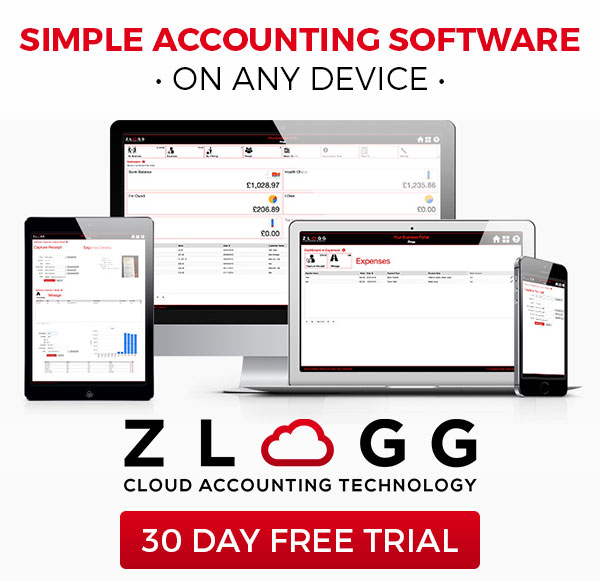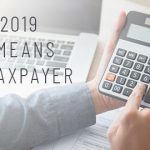Top 5 Tips when Self-Employed
If you’ve recently become (or are looking to become) self-employed then here are my top 5 tips for being self-employed to help ensure the process is as smooth as possible for you. Many people rush into self-employment and get the simplest of things wrong, usually because they didn’t know any better and learned the hard way, so if you can ensure you operate your self-employed business with these 5 tips in place then your life will run a little smoother I promise!
1. Keep Accounts Up to Date
All of these tips are important but this is first and foremost – please keep your business accounts up to date! This means either daily or weekly bookkeeping (accounting administration in simple) to ensure you are logging all your outgoings, incomings and keeping a clear and concise account of all business transactions taking place within your business.
This is for two reasons, firstly it makes your end of year tax return much easier to complete since most of the data required for your tax return will have already been covered within your ongoing record-keeping and will simply be a case of ‘filling in the boxes’. Secondly the HMRC can at any time request to see proof of your accounts and if they are not filed correctly you will incur an automatic fine and then be scrutinies even further by the ‘tax man’ for not keeping transaprent accounts and possibly be fined further.
Many self-employed people just wait until year-end when their tax return is due and then quickly download their transactions from their online business bank account and simply use that as their ongoing accounts. This never works properly for many reasons but mostly because it’s impossible for you to remember why every transaction took place, especially one that was almost a year ago! You may be sat there thinking…”yes but I’ll know what I spent everything on because it will say the name of the business I paid to”…well how about things that you bought online and the payee is ‘PayPal’? That could be for anything! There are hundreds of others but that’s just one example of why it never works simply downloading your bank accounts at year end. You need to keep your account continuously up to date and logging why each expense was made, especially if you’re going to claim anything against tax.
2. Keep Receipt of Every Purchase for Business
This ties in to my first point but I felt the need to be specific about this – you MUST keep a copy of every receipt for any purchases made for the purpose of your business and my advice is to store them for up to 7 years. This is simply because a receipt is the only proof you have when claiming allowable expenses and should the HMRC ever want to audit you then you will need to provide them with proof of purchases for specific items and if you’re unable to show a documented receipt then the HMRC will not allow you to claim for that expense. The reason I say to keep receipts ‘up to 7 years’ is because this is how far back the HMRC can go into your accounts and run an official audit! So you need to keep your receipts for this long just in case this situation ever arises.
Now I know how hard it can be to keep a copy of every receipt, we’ve all been there with boxes/bags packed to the brim with paper receipts which we all know fade over time. So I find the best method for keeping a copy of your receipts is digitally. So you can either take a picture or a scan and keep it stored on your computer for example, or the easiest method is to use something like Zlogg’s Receipt Capturing System which allows you to quickly and easily upload a picture or file of any receipt into your account where it is stored safely.
However you decide to store your receipts is entirely up to you but you must keep a copy of every receipt otherwise you will find yourself in a very awkward situation should the HMRC ever need you to provide proof of your purchase. As an accountant I see this happen on a daily basis where the HMRC do a simple audit of a business and they are unable to provide a receipt. Without that proof they simply will not allow you to claim for that expense and if they are looking at back-dated accounts then suddenly you owe the tax man money…sometimes a LOT of money. For example let’s say you offset your tax by claiming for a new business computer worth £2,000 – this is completely legitimate and you are completely within your right to do so, I might add! However, should the HMRC ever want to see proof of this transaction and you’ve lost the receipt then quite simply you now owe the HMRC £2,000 since you couldn’t provide them with evidence that this transaction ever occurred for your business. So better safe than sorry I say!
3. Claim Every Allowable Expense
As a newly established self-employed person you may not realise just how many business expenses are claimable which can then be offset against your tax bill – the rule is this, if any expense is made ‘wholly and exclusively’ for the purpose of your business then you can claim that expense within your end of year tax return. This is one of the few perks of being self-employed so make sure you take full advantage!
The reason I say this is simply because as all law-abiding citizens, self-employed people also must pay tax on what they earned – usually 20% in the UK – the only difference is you pay this at year-end when completing your self-assessment tax return instead of via your payslip like an employed person on PAYE. However as a self-employed person you can deduct amounts from this 20% tax bill so you pay less tax! As an example let’s say you’ve completed your self-assessment tax return and you owe £5,000 in tax. What then happens is all the ‘allowable expenses’ you claimed then get deducted from that £5,000 – so if you claimed £4,000 of allowable expenses then this gets deducted from your tax bill and magically you now only owe £1,000 in tax. Great isn’t it? I know that can be quite confusing so if that doesn’t quite make sense then check out the video below for some clarification!
So again, just make sure you claim EVERY allowable expense because it’ll save you money in the long run basically! If you want to see a list of the sorts of expenses you can claim then be sure to check out my blog all about Allowable Expenses.
4. Only Become Limited or VAT Registered for the Right Reasons
This is a common misconception that you need to be aware of. Many people think that to become a business they need to be ‘Limited’ and ‘VAT Registered’ – this is not true! As soon as you register as self-employed with the HMRC you are now an official business – simple as that.
So when do you become Limited and VAT Registered? Well both are slightly different in their reasoning so let’s start with becoming a Limited Company:
There are pros and cons of being a Limited Company which can be seen on my previous blog here. But the main thing to remember is you do not need to be a Limited Company if you don’t want to, simply being registered as a self-employed person makes you a legal business and you can then ‘trade as’ your business name and so on. Becoming Limited simply means you will become a ‘Company’ which has different legal ramifications in itself, but if you simply want to run your own business then just register as self-employed and you’re done! You can even hire staff on PAYE as a self-employed person as well without becoming a Limited Company – this is another common misconception I thought I’d better slip in here as well. So you really don’t need to go Limited if you don’t want to is what I’m getting at here.
VAT Registration is slightly different because there is actually a legal requirement to become VAT registered at a specific point (unlike going Limited) but the main thing to remember is that you don’t immediately have to become VAT registered once you go self-employed – this is another common misconception. The rule is this, once your business is earning over £85,000 (in turnover not profit) you must legally become VAT Registered – if you’re earning under this then you needn’t worry. It’s honestly that simple! So if you’ve just started your business then it’s VERY unlikely you’ll need to do this immediately, unless you have just setup and got a job/order for over £85,000 then you of course need to register immediately…and if this does apply to you…well done my friend!
5. Inform the HMRC of your Self-Employment
Although this is the last point on my list it is extremely important – this may not apply to you but if it does then please ensure you go and register your self-employment with the HMRC immediately. The simple rule is this, once you start running your business and are earning money then you must legally inform the HMRC of this. I see many people who have been operating a new business for a long time and still haven’t informed the HMRC and this extremely bad! Mainly because if the HMRC catch you before you inform them of your self-employment then you can get into some serious trouble both legally and financially (if they decide to fine you). It’s also very likely they will want you to provide immediate proof of accounts and go through everything ‘with a fine tooth comb’ see if you owe any outstanding tax.
So my advice is as soon as you’re ready to start your business then just register with the HMRC straight away, it’s very easy and can all done online now as well so there’s really no excuse for not doing it. To register just visit this link – https://www.tax.service.gov.uk/shortforms/form/CWF1ST – fill in all your details and ‘submit’. That’s really all there is to it!














Share On